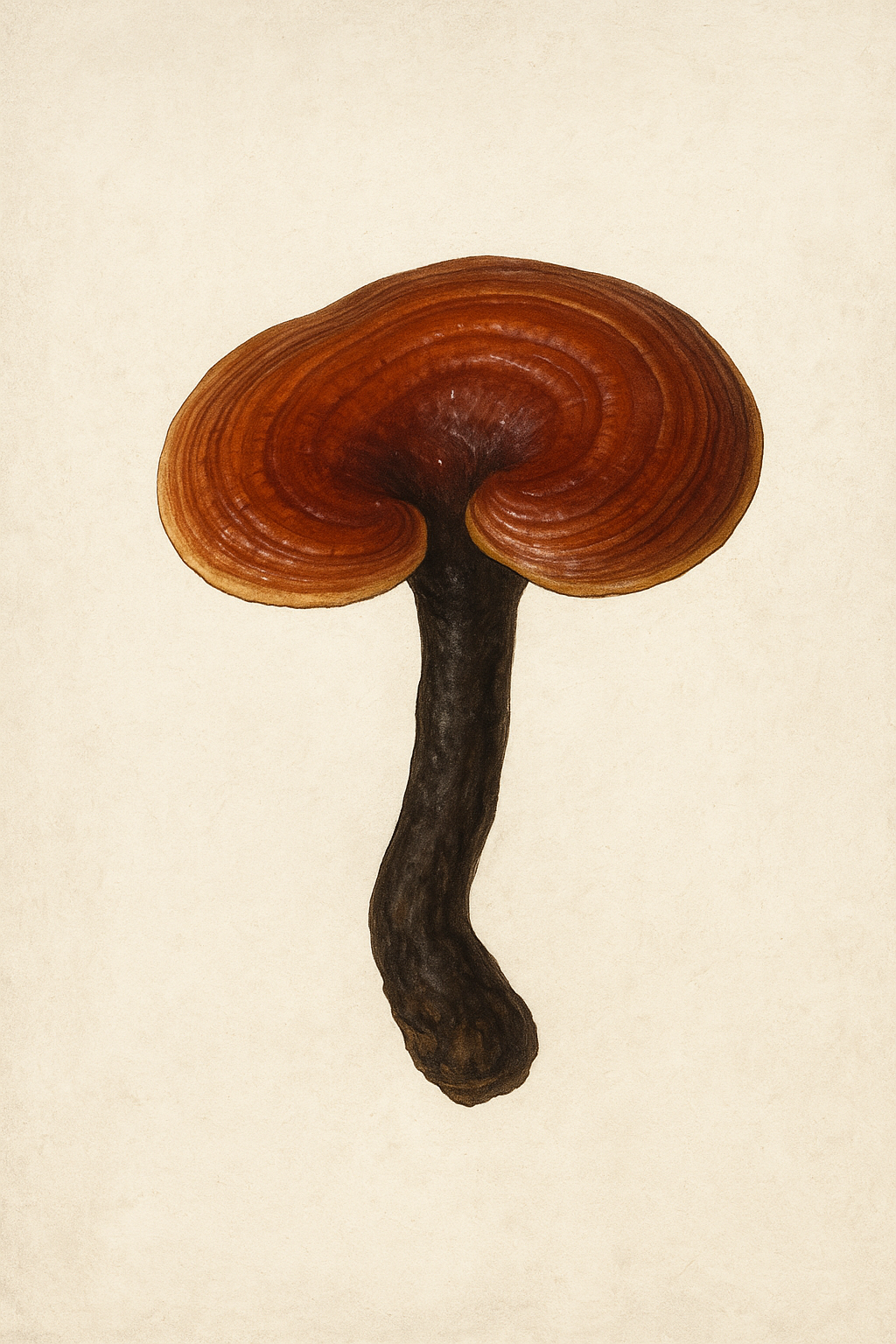Reishi
author: Ivy Grzybowski
category: Adaptogens
Reishi (Ganoderma lucidum), often called the "mushroom of immortality," has held a sacred place in Asian traditions for over two millennia. In ancient Chinese medical texts, Reishi was believed to nourish the mind, calm the spirit, and extend life itself. Unlike mushrooms cultivated for food, Reishi was prized for its bitter taste and subtle but profound effects on vitality. Emperors reserved it as an exclusive tonic, and Taoist monks described it as a bridge between the human and the divine. Modern research has investigated Reishi for its potential to support immune function, reduce inflammation, and promote balance in the nervous system. Its bioactive compounds, such as triterpenes and polysaccharides, have drawn interest in both traditional herbalism and pharmacological science. Reishi has also been seen as an adaptogen, helping the body adapt to stress while encouraging resilience and longevity. Stories from the past often highlight Reishi as a source of spiritual power, while today it is used in teas, tinctures, and capsules around the world. This mushroom continues to symbolize endurance, recovery, and equilibrium, linking ancient reverence to modern wellness practices.
Created: 2025-09-14 23:19:09 | Updated: 2025-09-14 23:19:09
← Back to all adaptogens
